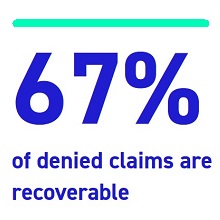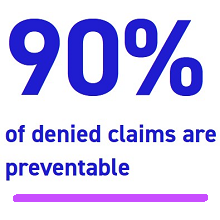HealthLeaders Media: There's a Surge in Payer-Provider Disputes. CFOs Need to Strategize.By: Amanda Norris | February 9, 2024The payer/provider turmoil has been heating up, and now there are numbers to show that it's not just all in our heads. KEY TAKEAWAYS
A not-so-unexpected trend has emerged: a notable uptick in payer/provider disputes year over year. In addition, according to research by FTI Consulting, disagreements over reimbursement rates and contract terms have also garnered more media attention in the last year, consistent with what HealthLeaders has been reporting. Even more, among these payer/provider disputes there seems to be a clear opponent for providers: Medicare Advantage (MA). Let’s look at what it all means and how CFOs can better address these challenges. The numbersAccording to the research, over the past two years negotiations between payers and providers have increasingly resulted in disputes that have captured the attention of the media. The coverage of these disputes has grown significantly, with a remarkable increase in 2023 compared to the previous year. The study found that in 2023, there were 86 publicly reported disputes covered by media outlets, showing a 69% surge from the 51 disputes witnessed in 2022. These conflicts have spanned across 34 states, emphasizing the widespread impact. "I think you're going to see an acceleration in the public town square, the competitiveness and the negotiating in the public opinion space," Britt Berrett, managing director and teaching professor at Brigham Young University and former CEO with HCA, Texas Health Resources, and SHARP, previously told HealthLeaders. "I think moving forward, you're going to see a tremendous amount of public awareness on contract negotiations. Payers and providers are going to be arguing their cases in the town square," he says. Interestingly, out of the total disputes covered by the media in 2023, 44% failed to reach an agreement. This failure to establish timely agreements mirrors the trend observed in 2022 when 45% of disputes remained unresolved. As mentioned, the data shows that MA plans have emerged as a focal point in contract disputes between payers and providers. In 2023, 59% of the disputes reported in the media involved MA plans, with 12 disputes exclusively focused on MA plans. This trend aligns with the previous year, where 56% of disputes referenced MA plans. What does it mean for hospital and health system CFOs?We know that payer/provider relationships are only becoming more complex, and these disputes are starting to take center stage among the challenges faced by hospital and health system CFOs. The surge in media coverage of these differences underscores the need for proactive measures to navigate the evolving payer landscape. Here are key strategies I have gathered from some of the best CFOs in the game: Strengthen negotiation tactics: As reimbursement rates become a more contentious issue, CFOs need to enhance their negotiation strategies to secure favorable agreements with payers. And CFOs need to remember they have more leverage in negotiation talks than they think, but it requires willingness and preparation to pull levers that may be uncomfortable yet necessary for financial survival. One option is to collaborate with legal and financial teams to develop a well-informed bargaining position can help ensure fair reimbursement. A second option? Consider contact termination. Dropping a payer is “absolutely an important strategy,” Berrett says. “Providers are becoming more capable in measuring the impact of the slow or rejected payments, and providers are looking at the actual cost of care by patient. Payers need to be aware that.” There are two important considerations for providers when negotiating, Berrett says. “Are we able to collect our negotiated rates, and are the patients covered by this payer more expensive to treat?” Develop robust communication channels: Establishing effective lines of communication with payers is crucial to resolving disputes promptly. CFOs should work closely with their revenue cycle management teams to foster open dialogue with payers, enabling timely negotiation and dispute resolution. Focus on your patient impact: Hospital and health system CFOs must prioritize patient experience and minimize disruption amidst disputes. Developing contingency plans and early communication with patients can alleviate concerns and ensure seamless access to care. Monitor the regulatory environment: Stay abreast of regulatory changes and proposed legislation that may impact payer-provider relationships—for example, CMS’ attempt to better regulate MA. Understanding evolving regulations can inform negotiation strategies and help CFOs navigate potential roadblocks. Amanda Norris is the Associate Content Manager of Finance, Payer, Revenue Cycle, and Strategy for HealthLeaders. |




